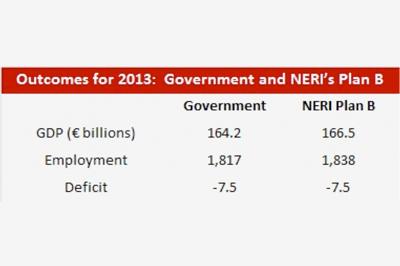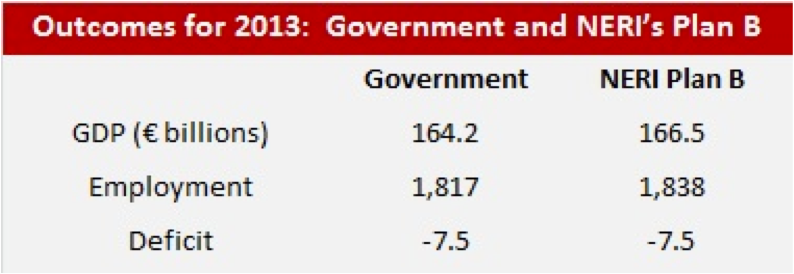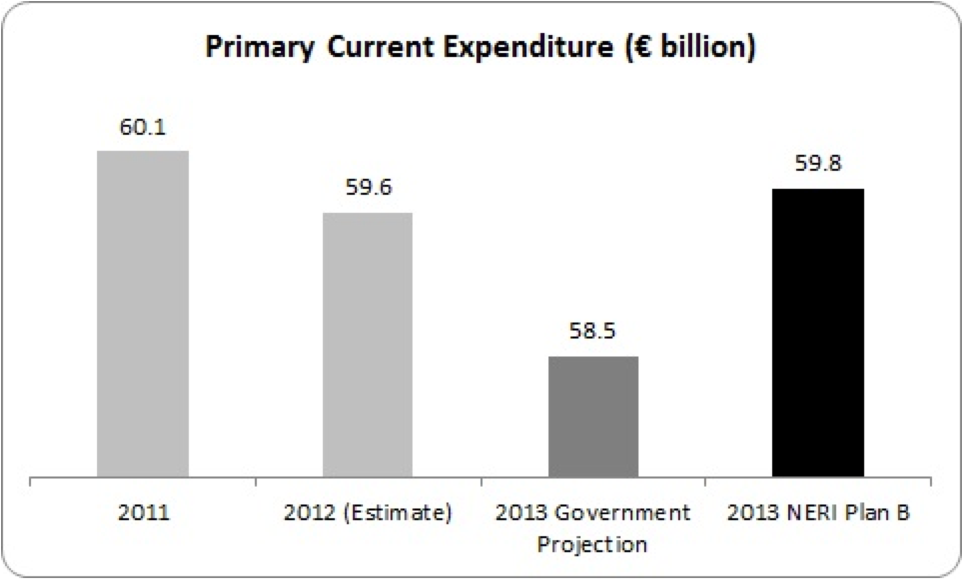Mapping out a clear alternative

The Nevin Economic Research Institute's budgetary proposals would remove the need for cuts in public services and social protection, increase investment, and keep more people at work than under the Government’s plans – and all this while maintaining the same pace of deficit reduction. By Michael Taft.
The Nevin Economic Research Institute, ICTU’s think-tank, has looked into the budgetary future and finds there is a better way of doing things. They have utilised all the tools of economic analysis to show that what they call ‘Plan B’ is a far better way of doing business than what the Government intends. Their budgetary proposals would remove the need for cuts in public services and social protection, increase investment, and keep more people at work than under the Government’s plans – and all this while maintaining the same pace of deficit reduction. It doesn’t make grandiose claims (billions in soaking the rich, hundreds of thousands more at work, etc.). It merely shows that there is an alternative that is better. This is an analysis and a programme that all progressives – in civil society, trade unions, political parties (including the Labour Party) – can rally around, while providing that commodity we need most – hope.
NERI bases its proposals on a sophisticated model – the HERMIN model - which is used by other economists.
“The HERMIN model uses macro-economic data to allow researchers to bring together different production sectors of the economy in a complex model that relates producer, consumer, investor and labour market behaviour to external developments in trade, prices and currency movements.”
I’m not suggesting that NERI’s modelling is superior to any other, or that we should become seduced by models (all the models in the world didn’t foresee the recession in the first place). However, it shows that NERI’s programme is not a wish list or some back-of-the-envelope job. It is a serious piece of work that deserves the same consideration as other programmes and analysis.
So what are they suggesting? Namely, that the Government’s fiscal adjustments should be turned on their heads.
- The Government proposes that spending cuts make up 64% of the total fiscal adjustments. NERI proposes that tax increases make up 85% of the total adjustments.
- The Government intends to cut public investment by €550 million. NERI proposes to reverse this cut and add an additional €500 million. Under NERI, there will be €1 billion more investment flowing into the economy, increasing its capacity to grow and putting people back to work.
- The Government intends a fiscal adjustment of €3.5 billion. But because the tax and investment dynamic produces a better outcome, NERI proposes a fiscal adjustment package of €2.7 billion.
So what are the results?
 Under NERI’s Plan B, GDP rises by more than €2 billion above the Government’s projection. There will be 21,000 more people at work under NERI’s proposals. And the deficit will be the same. That’s the effect of a progressive, investment-based, pro-growth economic strategy.
Under NERI’s Plan B, GDP rises by more than €2 billion above the Government’s projection. There will be 21,000 more people at work under NERI’s proposals. And the deficit will be the same. That’s the effect of a progressive, investment-based, pro-growth economic strategy.
What’s particularly interesting – and here I’m working on my own calculations, so any mistake is mine, not NERI's – is that not only are most budget cuts removed, the end effect of NER’s strategy is that we would be able to spend more on public services and social protection. This is defined by what is called the ‘primary current budget’. This refers to the current budget (spending on public services, social protection, wages, etc. - excluding the capital budget) minus interest payments. I have used investment as a substitute for the capital budget.
 Not only is primary current spending higher under the NERI programme than the Government’s in 2013 (€1.3 billion higher), it is slightly higher than this year and almost returns us to 2011 levels.
Not only is primary current spending higher under the NERI programme than the Government’s in 2013 (€1.3 billion higher), it is slightly higher than this year and almost returns us to 2011 levels.
This opens up the scope for further increases in spending on public services and social protection by re-directing spending within the current budget – savings on public service efficiencies, removal of regressive spending, and reduced unemployment costs.
NERI proposes a menu of progressive tax measures that could be introduced which would spare low and average income earners and, therefore, would limit the damage to the domestic economy. I just want to draw attention to three measures under corporation tax:
- End the manipulation of carrying forward of losses – NERI claims these are of dubious economic impact and regressive
- Abolish/Reform the treatment of undistributed reserves whereby company directors can manipulate the system to draw down tax-free lump sums of hundreds of thousands of euros on retirement.
- Reform interest deductions – by imposing a limit on interest paid by companies as a percentage of a company’s assets. This would prevent public subsidy of speculative debt.
These innovative measures wouldn’t impact on the corporate tax rate (though the Government has claimed everything is on the table, the corporate tax is not – in fact, it’s not even let into the dining room) but it would remove inequitable tax avoidance.
NERI has presented us with an authoritative template which the broadest possible coalition against failed austerity policies can rally around. That doesn’t mean progressives will agree with everything contained in the latest Quarterly Observer. I have a few quibbles with details. But you don’t build coalitions around details, you build them around principles. NERI’s principles of investment and tax-driven fiscal adjustments have been shown to work.
Not a bad day’s work.
